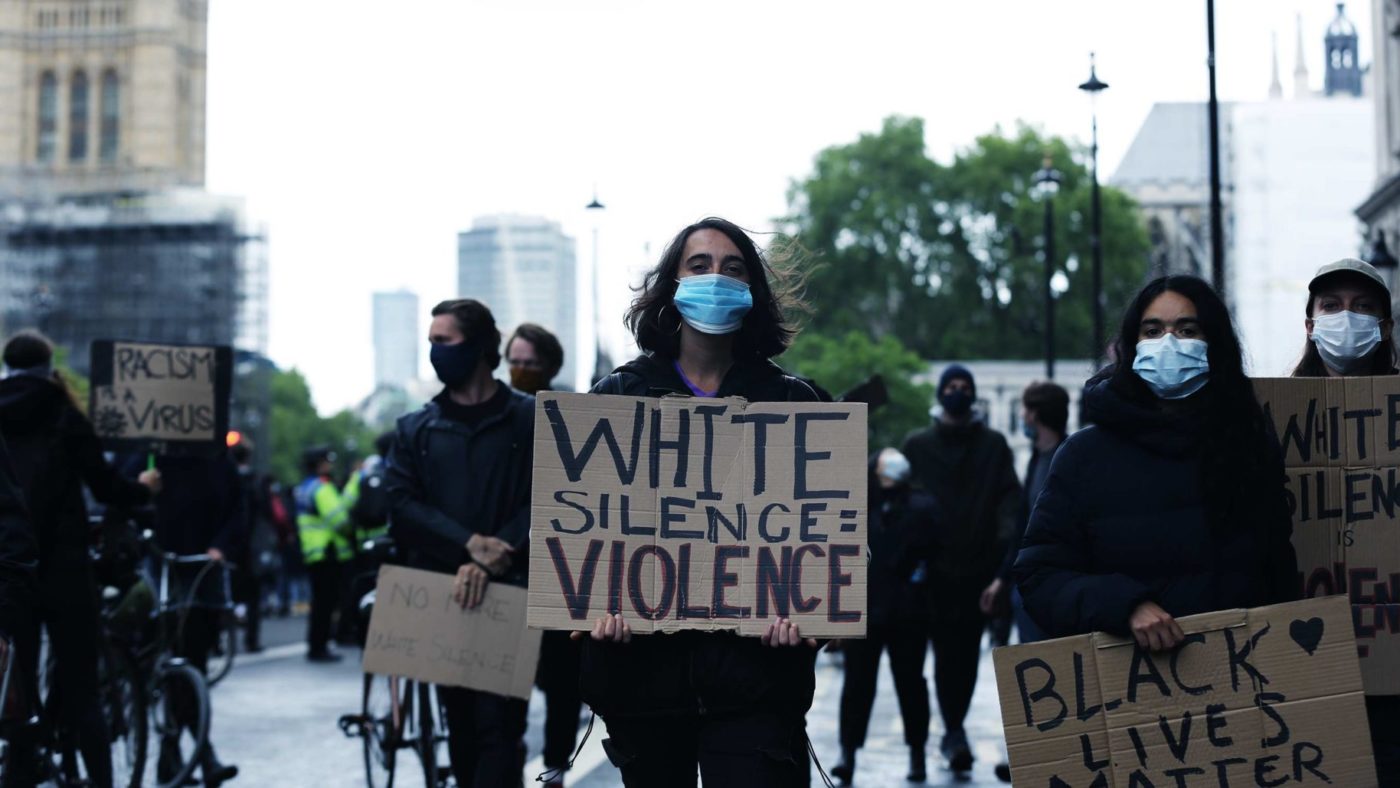As ever, what starts in the US usually makes its way across the pond soon enough. So the convulsions that have been visited upon American cities in the days since George Floyd’s murder yesterday found their expression on this side of the pond, with mass protests in central London and other British cities.
Though the antics of a handful of mindless miscreants defacing war memorials and attacking police horses will grab some headlines, the protests were overwhelmingly peaceful – though one might well take issue with some of the sloganeering, or the implication that British institutions are responsible for the actions of an American police officer.
As a few commentators have noted, there is a bitter irony in a mass protest against racism increasing the risk of spreading coronavirus – a disease which has disproportionately affected ethnic minority Britons.
Public health concerns aside, there is something peculiar about the transplanting of American grievances to a British context. We may feel a certain contiguity of experience thanks to our shared cultural touchstones, but it’s a long stretch from there to the spectacle of British protesters shouting “stop, don’t shoot” at unarmed Metropolitan Police officers. It’s also a curiously one-way phenomenon. Would anyone suggest, for instance, that white Americans should take responsibility for the Windrush scandal or the murder of Stephen Lawrence?
It’s a leap too from observing that racism is still all too prevalent to London mayor Sadiq Khan’s claim that “no country, city, police service or institution can absolve itself of the responsibility to do better”. His remarks are true in a narrow, platitudinous sense – who would not want their institutions to perform better? – but not when it comes to the murder of George Floyd, for which blame rests squarely with Derek Chauvin and the colleagues who did nothing to stop him snuffing out Mr Floyd’s life.
At the same time, it’s not enough to just point to America and say that the UK is doing well by comparison. Of course, there’s no doubt things have improved markedly since the days of ‘No Blacks, No Dogs, No Irish’ signs, and the academic Rob Ford has charted the precipitous decline of hostile racial attitudes over the space of the last 30 years. But only the most starry-eyed observer would claim Britain has somehow cracked the problem of racial discrimination. It’s only a bit over ten years, after all, since nearly 1 million people voted for a real, live neo-Nazi party in the form of the BNP.
Equally, when talking about discrimination it is too crude to speak of a single racism or BME experience or outlook. As the perceptive pollster James Kanagasooriam notes, some ethnic minority groups’ voting patterns now mirror those of white voters, while others are notably to the right or the left. The idea of a predictable ‘BME person’ or group of voters is clearly for the birds.
And, as we have noted on CapX before the economic experiences of different Britons are hugely varied, not just between ethnic groups, but also within superficially similar cohorts. The same is true of white Britons, of course, especially when you consider that white working class boys have the lowest attainment of any group in the UK’s schools.
The complexity of these issues suggests there is no switch to flick that will transform people’s experiences. There are, however, some simple steps that could make things more equitable. The idea of name-blind job applications, for instance, has a great deal of merit. Indeed, some employers would do well to take a leaf out of the Spectator’s book and offer entirely CV-blind applications, where applicants really are selected based purely on aptitude.
One thing is certain: the issues of discrimination and disadvantage will not be meaningfully dealt with through the brain-deadening prism of a culture war, even if ours is a tame imitation of the American version. It’s all too easy to brand others as ‘opponents’ or even ‘enemies’ rather than simply people who take a different view, for whatever reason. That’s as true of the ‘Your a Tory!’ school of leftwingery as of rightwingers airily dismissing any claim of prejudice as ‘woke’ or ‘political correctness gone mad’.
It strikes me as unlikely that the path to a more harmonious society is through constant slanging matches and disingenuous, unwinnable social media scraps. Maybe the answer, whatever our political or cultural outlook, is to stop trying to ‘win’ an argument all the time and have the humility to listen to each other.
Click here to subscribe to our daily briefing – the best pieces from CapX and across the web.
CapX depends on the generosity of its readers. If you value what we do, please consider making a donation.


